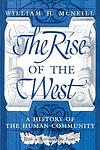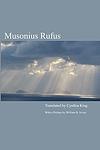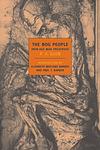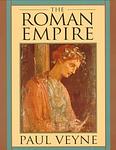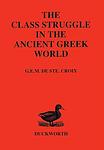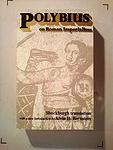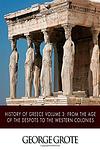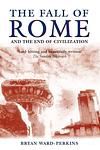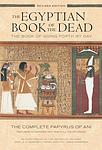The Greatest "Nonfiction, Ancient History" Books of All Time
Click to learn how this list is calculated.
This list represents a comprehensive and trusted collection of the greatest books. Developed through a specialized algorithm, it brings together 300 'best of' book lists to form a definitive guide to the world's most acclaimed books. For those interested in how these books are chosen, additional details can be found on the rankings page.
Genres
Ancient History is a category of books that focuses on the study of human civilizations and societies that existed in the distant past, typically before the Middle Ages. This genre encompasses a wide range of topics, including the rise and fall of empires, the development of religions and cultures, the evolution of technology and science, and the political and social structures of ancient societies. Ancient History books provide readers with a glimpse into the lives and experiences of people who lived in a vastly different world than our own, offering insights into the origins of modern civilization and the forces that shaped our world today.
Countries
Date Range
Reading Statistics
Click the button below to see how many of these books you've read!
Download
If you're interested in downloading this list as a CSV file for use in a spreadsheet application, you can easily do so by clicking the button below. Please note that to ensure a manageable file size and faster download, the CSV will include details for only the first 500 books.
Download-
26. Natural History by Pliny (the Elder)
"Natural History" is an extensive work of literature that provides a comprehensive look at the knowledge of the natural world during the Roman era. The book is divided into 37 volumes, each focusing on different aspects such as geography, anthropology, zoology, botany, and mineralogy. The author's curiosity and fascination with the world are evident in his detailed observations and descriptions. The book also includes discussions on art, sculpture, and various other topics, providing a rich and detailed snapshot of the Roman understanding of the world.
-
27. The Rise of the West by William H. McNeill
"The Rise of the West" is a comprehensive historical narrative that explores the development of Western civilization from the early stages of human history to the 20th century. The book provides a detailed analysis of various civilizations around the world, their interactions, and the resulting cultural exchanges that have shaped the modern world. It also discusses the significant factors, such as technological advancements, religious transformations, and political changes, that have contributed to the West's ascendancy.
-
28. Anabasis by Xenophon
"Anabasis" is a historical narrative detailing the journey of 10,000 Greek mercenaries who are hired by Cyrus the Younger to help him seize the Persian throne from his brother, Artaxerxes II. After Cyrus's death in battle, the Greeks are stranded deep in enemy territory with no supplies or means of escape. The narrative follows their perilous journey home through hostile lands, under the leadership of one of their own, a young soldier who emerges as a capable and inspiring leader.
-
29. Antériorité Des Civilisations Nègres by Cheikh Anta Diop
"Antériorité Des Civilisations Nègres" by Cheikh Anta Diop explores the history and achievements of African civilizations, challenging the prevailing Eurocentric narrative that downplays the contributions of African cultures. Diop presents a compelling argument for the existence of advanced African civilizations and their impact on world history, drawing on linguistic, archaeological, and anthropological evidence. Through meticulous research, he highlights the intellectual, scientific, and cultural achievements of African societies, ultimately reclaiming their rightful place in the annals of human civilization.
-
30. Musonius Rufus by Musonius Rufus, Cynthia King
This book presents the teachings of Musonius Rufus, a prominent Stoic philosopher of the 1st century AD, whose ideas focus on the practical applications of Stoicism in daily life. Through a series of lectures and dialogues, Rufus emphasizes the importance of virtue as the sole path to happiness, advocating for simplicity in living, self-discipline, and equality between men and women in education and marriage. His accessible philosophy addresses how to live a good and moral life, covering topics from diet and exercise to the handling of emotions and the importance of philosophical study.
-
31. The Bog People by P.V. Glob
"The Bog People" explores the fascinating archaeological discoveries of remarkably preserved human bodies found in the peat bogs of Northern Europe. Written by an esteemed archaeologist, the book delves into the Iron Age context of these finds, examining the clothing, artifacts, and ritualistic evidence surrounding the bodies. The author offers insights into the possible cultural and religious reasons behind the bog burials, suggesting that these were not merely accidental deaths but rather deliberate deposits, possibly sacrifices. Rich in detail and engagingly written, the book provides a window into a mysterious past where life, death, and belief systems intertwine in the damp moors of ancient Europe.
-
32. Gardens Of Adonis by Marcel Detienne
"Gardens of Adonis" delves into the intricate world of ancient Greek mythology and rituals, focusing on the figure of Adonis. The book explores the symbolic and practical roles of spices and herbs in Greek culture, particularly in relation to the Adonis cult. Through an analysis of the ephemeral gardens dedicated to Adonis, the work examines themes of fertility, death, and rebirth, revealing how these gardens, despite their fleeting nature, held profound meanings for ancient Greek society. The study highlights the interplay between myth and ritual, offering insights into the agricultural and religious practices of the time.
-
33. The Roman Empire by Paul Veyne
"The Roman Empire" delves into the intricate and expansive history of Rome, exploring its political, social, and cultural dynamics. The book provides a detailed examination of how Rome evolved from a small city-state to a vast empire, influencing the Western world profoundly. The author analyzes the mechanisms of power and governance within the empire, the role of military conquests and political alliances, and the complex interactions between Roman and other cultures. Additionally, the narrative discusses the daily lives of Roman citizens, the economic frameworks, and the philosophical and artistic contributions that shaped the legacy of the Roman Empire.
-
34. Themis by Jane E. Harrison
"Themis" is a scholarly work that delves into the origins and development of ancient Greek religion, focusing particularly on the social aspects of ritual and myth rather than the theological specifics. The book examines the concept of Themis, traditionally associated with divine order and law, and explores how this concept relates to the collective consciousness and practices of early Greek society. Through a detailed analysis of rituals, festivals, and myths, the author argues that Themis plays a central role in creating and maintaining social order and cohesion among the ancient Greeks. The study draws extensively on literary and archaeological sources to reconstruct the religious atmosphere of ancient Greece, providing insights into how early Greeks understood their world and the divine forces that shaped it.
-
35. The Greeks And The Irrational by E.R. Dodds
In "The Greeks and the Irrational," the author explores the concept of irrationality within ancient Greek culture, challenging the traditional view of the Greeks as pioneers of rational thought. The book delves into various aspects of Greek society, including religion, philosophy, and literature, to uncover the presence and acceptance of irrational elements such as divine inspiration, prophecy, and mystical practices. By examining these aspects, the work argues that irrationality was integral to the Greek worldview and that acknowledging this can lead to a more nuanced understanding of ancient Greek civilization and its contributions to Western thought.
-
36. The Class Struggle In The Ancient Greek World by G.E.M. de Ste. Croix
"The Class Struggle in the Ancient Greek World" is a comprehensive historical analysis that explores the dynamics of class conflict from the earliest times in ancient Greece up to the Roman Empire. The book delves into how social and economic factors shaped class relations and examines the extent to which class struggle influenced political developments and historical outcomes in the ancient world. Through meticulous examination of sources and evidence, the work challenges traditional views of ancient society by highlighting the significance of class divisions and conflicts as central elements in the historical progression of the Greek and Roman periods.
-
37. The Histories by Polybius
"The Histories" is a comprehensive account of the rise of the Roman Empire, focusing on the period from 264-146 BC. The author, a Greek statesman, provides a detailed analysis of the political, military, and social structures of Rome, attributing its success to a balanced constitution and superior military organization. The work also includes first-hand accounts of several significant events, such as the Third Punic War and the Numantine War.
-
38. Catiline's War, The Jugurthine War, Histories by Sallust
This book is a combination of three works by a Roman historian and politician, focusing on the political and military events of the late Roman Republic. It first covers the conspiracy led by Catiline in 63 BC, then shifts to the war against Jugurtha in North Africa, and finally provides a fragmentary history of Rome from 78-67 BC. The author uses these events to critique the moral decay of Rome, highlighting the corruption, greed, and ambition that he believed led to the fall of the Republic.
-
39. Selected Speeches by Demosthenes, Robin Waterfield
"Selected Speeches" is a compilation of orations by one of ancient Greece's most renowned orators, Demosthenes. The collection, translated and edited by Robin Waterfield, showcases Demosthenes' eloquence and his passionate involvement in the political life of Athens. Through these speeches, readers gain insight into the complex social and political issues of the time, including the struggle against Macedonian influence under Philip II. The speeches not only highlight Demosthenes' rhetorical prowess but also reflect the dynamics of power and resistance in classical Athens, offering a window into the art of persuasion and the civic identity of the Athenians.
-
40. History Of Greece by George Grote
This book provides a comprehensive analysis of Greek history, from its earliest periods in ancient times through the Hellenistic era. The author meticulously details the political, social, and cultural developments of various Greek city-states, emphasizing the democratic processes of Athens and the military prowess of Sparta. Through a critical examination of sources and a narrative enriched by philosophical and ethical insights, the work explores the rise and fall of Greece, its interactions with neighboring civilizations, and its lasting impact on Western thought and civilization.
-
41. Persian Fire by Tom Holland
The book provides a riveting historical account of the Greco-Persian Wars, focusing on the rise of the Persian Empire under leaders such as Cyrus the Great and Darius, and its eventual confrontation with the city-states of Greece. It delves into the political, cultural, and military aspects of this ancient clash, highlighting key figures and battles, such as Marathon and Thermopylae. The narrative not only explores the strategies and tactics employed but also the broader implications of the conflict on the development of Western civilization, offering insights into the complex interplay of power and identity in the ancient world.
-
42. The Fall Of Rome by Bryan Ward-Perkins
"The Fall of Rome" presents a compelling argument that the decline of the Roman Empire was both a rapid and devastating event, challenging the notion of a gentle transformation. The author uses archaeological evidence and material culture, such as pottery shards and coinage, to illustrate a significant decrease in economic vitality and urban life following the fall of Rome. This decline led to dramatic reductions in general living standards and the loss of sophisticated crafting and building techniques. The book effectively counters the idea of a seamless transition to the early Middle Ages, instead portraying a period marked by turmoil and hardship.
-
43. Moralia by Plutarch
"Moralia" is a collection of essays and dialogues that delve into various ethical, religious, physical, political, and literary topics, reflecting the author's profound interest in the moral issues of his time. The work is not a single coherent piece but rather an eclectic compilation of thoughts and inquiries, ranging from the proper behavior at a banquet to discussions on the nature of virtue and the influence of superstition. Through these texts, the author explores the conduct of daily life and the philosophical underpinnings of human actions, often drawing on historical examples and the wisdom of Greek and Roman thinkers to illustrate his points. The collection serves as a rich source of insight into the intellectual climate of the early Imperial period and the enduring questions of human morality.
-
44. Egyptian Book Of The Dead by Unknown
The text in question is an ancient Egyptian funerary text consisting of spells, prayers, and incantations intended to guide the deceased through the afterlife. It contains detailed instructions for the soul's journey past various obstacles, with the ultimate goal of reaching the afterlife and achieving eternal life. The spells are designed to protect the soul from evil forces, ensure the continuation of life after death, and maintain harmony with the gods. This collection of texts highlights the Egyptians' beliefs about the importance of the afterlife and the complex rituals associated with death and burial practices.
-
45. Works by Empedocles
The book in question is a compilation of philosophical and poetic writings attributed to an ancient pre-Socratic philosopher. It delves into the author's theories on the nature of the universe, which are centered around four eternal elements—earth, air, fire, and water—and two opposing forces, Love and Strife, which are responsible for the combination and separation of these elements. The work also touches upon themes such as the transmigration of souls, the unity of being, and the importance of striving for harmony with the cosmos. Through a blend of poetic allegory and speculative thought, the text seeks to explain the complexity of the world and the principles governing its changes and transformations.
-
46. On The Gods by Marcus Tullius Cicero
The book is a philosophical treatise that explores ancient theological concepts and the nature of the gods, presenting a critical examination of various religious beliefs and practices of the time. The author, a Roman statesman and scholar, engages in a series of dialogues that delve into the existence and attributes of the divine, contrasting the Epicurean view of detached gods with the Stoic belief in a providential order. Through rigorous argumentation and eloquent rhetoric, the work seeks to understand the role of the gods in human life and the universe, while also reflecting on the implications of piety, fate, and the pursuit of happiness within the context of Roman religion and philosophy.
-
47. The Prose Edda by Snorri Sturluson
The book in question is a medieval Icelandic manual on poetics that also serves as a compendium of Norse mythology and heroic legends. Written by an influential historian, poet, and politician, it is intended as a guidebook for aspiring poets to understand the complex metaphors that permeate Old Norse poetic tradition. The work is divided into several sections, beginning with a prologue that provides a Christianized account of the origin of the Norse gods, followed by a narrative that explains the mythological cosmos, the pantheon of gods and their adventures, and the eschatological destiny of the world in Ragnarök. The latter part of the text focuses on the art of skaldic poetry, including its metrics, stylistic conventions, and the use of kennings, which are intricate metaphorical phrases that characterize much of Norse verse.
-
48. Cleopatra: A Life by Stacy Schiff
"Cleopatra: A Life" by Stacy Schiff is a detailed biography of one of the most famous and enigmatic figures in history, Cleopatra VII of Egypt. The book explores her life from childhood to her reign as queen, her relationships with Julius Caesar and Mark Antony, and her eventual downfall. Schiff uses primary sources and historical records to paint a vivid picture of Cleopatra's world and dispel many of the myths surrounding her life. The book also delves into the political and cultural context of ancient Egypt and Rome, providing a fascinating glimpse into a bygone era.
-
49. Collapse by Jared Diamond
"Collapse" is an exploration of why certain societies throughout history have thrived while others have deteriorated and collapsed. The book delves into environmental problems, climate change, rapid population growth, and unwise political decisions as factors that contribute to the downfall of a civilization. The author uses examples from history such as the Mayans, the Vikings in Greenland, and modern examples like Rwanda and Haiti, to illustrate his points. It serves as both a historical analysis and a warning for modern societies to learn from the past in order to avoid a similar fate.
-
50. Allegorical Expositions of the Holy Laws by Philo of Alexandria
This book is a comprehensive examination of the Jewish laws as interpreted through the lens of Hellenistic philosophy. The author uses allegory to explain the significance and deeper meanings behind these laws, drawing on both Jewish and Greek philosophical traditions. The text serves as an exploration of morality, ethics, and religious observance, offering readers a unique perspective on Jewish law and its intersection with broader philosophical concepts.
Reading Statistics
Click the button below to see how many of these books you've read!
Download
If you're interested in downloading this list as a CSV file for use in a spreadsheet application, you can easily do so by clicking the button below. Please note that to ensure a manageable file size and faster download, the CSV will include details for only the first 500 books.
Download
